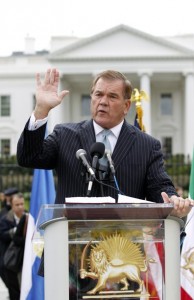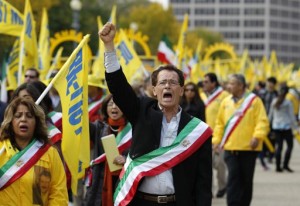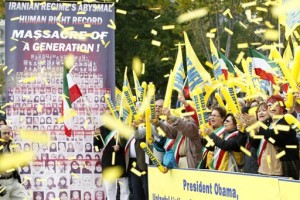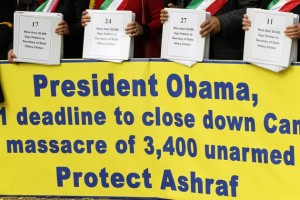ASSOCIATED PRESS
BRUSSELS – Members of the European Parliament are asking for international help to prevent what they say could be a massacre of Iranian dissidents in Iraq.
A statement signed by 180 parliamentarians from all political parties says the lives of 3,400 Iranian dissidents in Camp Ashraf are in danger.
Iraq Prime Minister Nouri al-Maliki, who has close ties with Iran, has said the camp must be closed by the end of 2011.
But the statement, emailed to journalists on Monday, says: “This could be used as a pretext for a large-scale massacre.”
The parliamentarians want the deadline extended so the Iranian’s asylum claims can be heard and they can be resettled elsewhere.
The U.N. says at least 34 people were killed when Iraqi security forces raided the camp in April.
http://www.metronews.ca/halifax/world/article/1011258–eu-lawmakers-fear-massacre-of-iranians-in-iraq



